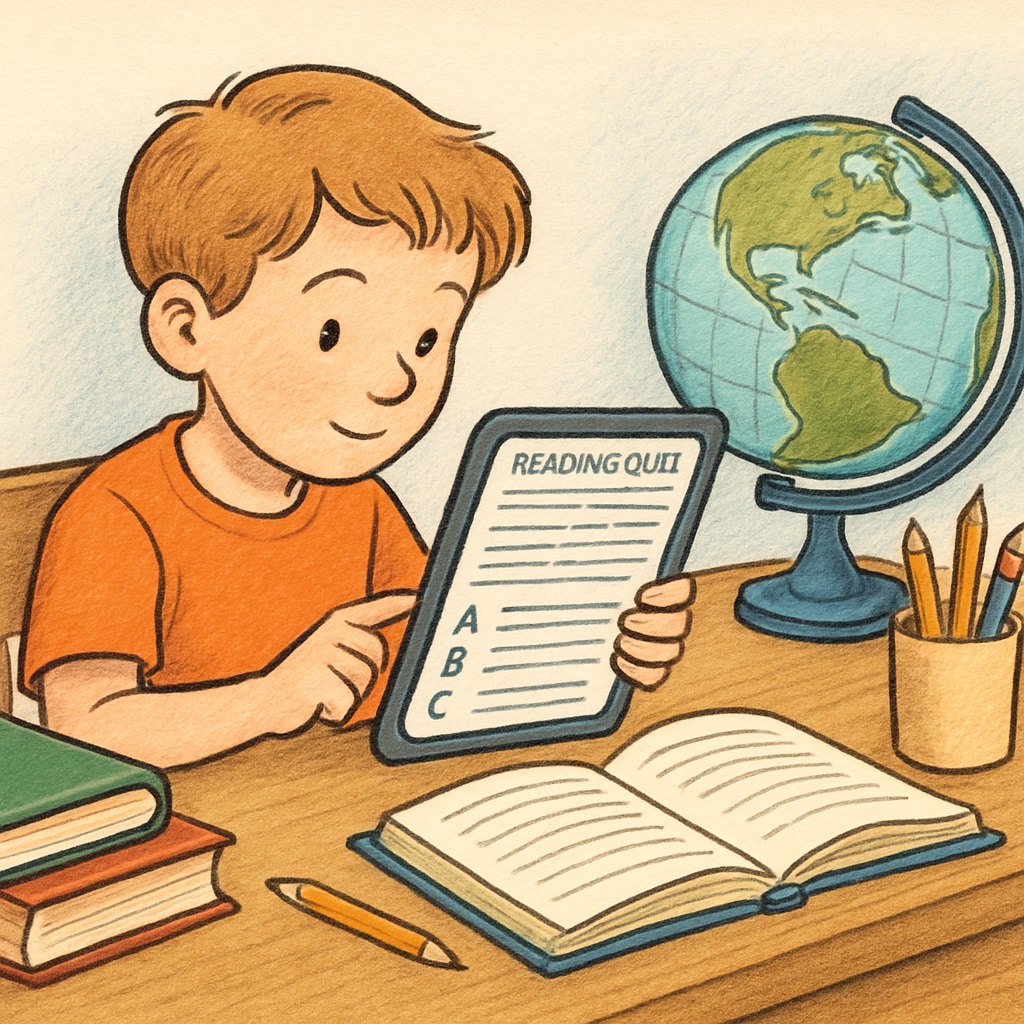Encouraging kids to read is a priority for many parents and educators. Using free reading comprehension tools is an excellent way to both challenge and motivate young readers. The A.R. (Accelerated Reader) points system is widely known for rewarding students’ reading achievements. However, there are free alternatives that can be just as effective in building a love for books. This article will explore the advantages of these tools, compare free options to the A.R. system, and provide tips for crafting your own reading comprehension quizzes to keep kids excited about reading.
What Makes Reading Comprehension Tools Effective?
Reading comprehension tools are designed to develop critical thinking and improve understanding of texts. They typically present questions that test vocabulary, inference, and recall skills. When engaging tools are used, reading feels less like a chore and more like an adventure.
For example, the A.R. points system motivates children to read by assigning quizzes to books and awarding points for correct answers. As students accumulate points, they can earn rewards, fostering a sense of achievement. However, this program often requires a subscription fee that may not be accessible to every family or school.
Free Reading Comprehension Tools to Try
If the A.R. system is out of reach, there are numerous free alternatives that can deliver similar benefits. Here are a few excellent options:
- Khan Academy Kids: This app offers free reading exercises tailored to different grade levels, including interactive stories and comprehension questions.
- ReadWorks: A nonprofit platform providing free reading passages and question sets for K-12 students.
- CommonLit: Offers free reading materials with comprehension questions, ideal for kids in third grade and above.
- Epic! (Free Version): A digital library with quizzes and guided reading features suitable for younger readers.
These resources allow parents and educators to introduce structured reading comprehension activities without additional costs.

Create Personalized Reading Comprehension Quizzes
In addition to online tools, you can design your own reading tests to align with your child’s interests. Personalized quizzes offer flexibility and can be tailored to specific books or stories. Here’s a simple guide:
- Choose a Book: Pick a book your child is currently reading or a story they enjoy.
- Develop Questions: Create 5–10 questions focusing on key details, themes, and vocabulary.
- Mix Question Types: Use a combination of multiple-choice, true/false, and short-answer questions.
- Offer Rewards: Set milestones or small rewards (e.g., stickers or extra playtime) for completing quizzes.
By integrating rewards, similar to the A.R. points system, children are more likely to stay motivated and engaged.

Inspire Lifelong Readers
Free reading comprehension tools, combined with creative activities like personalized quizzes, can transform the way children approach reading. By fostering curiosity and rewarding effort, parents and educators can spark a lifelong love for books. Whether through free platforms like ReadWorks or at-home quizzes, the key is to make reading meaningful and fun.
For more insights on fostering reading skills, check out resources from trusted organizations like Reading Rockets or the International Literacy Association.
Readability guidance: This article uses short paragraphs, bullet points, and accessible language to ensure clarity. Transition words like “for example,” “in addition,” and “as a result” are used to maintain a logical flow.


